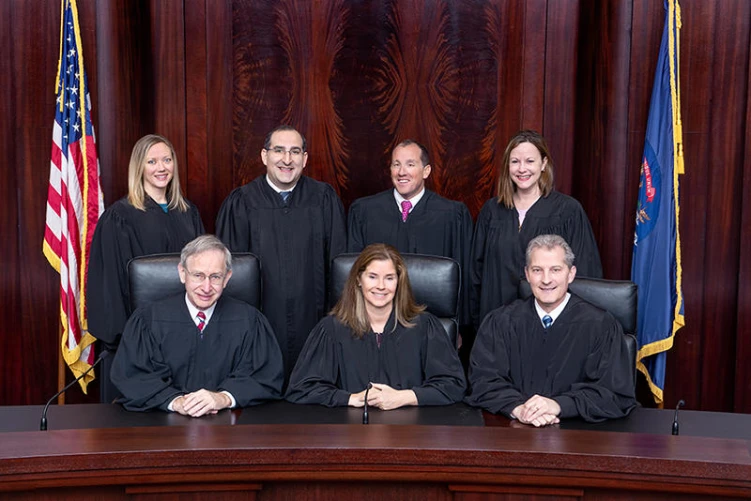- Domestic violence is a pervasive issue in Australia that affects both men and women.
- There are various laws to provide protection and support services, such as Domestic Violence Orders and Crimes Act.
- The Family Law Act 1975 governs family matters and recognizes the impact of family violence on children’s well-being.
- Workplace health and safety regulations require employers to provide a safe working environment for their employees.
Domestic violence is a significant issue that affects many people in Australia. It is a pervasive social problem that affects both men and women, and it can take many forms, such as physical, emotional, sexual, and financial abuse. There has been a growing awareness of the issue in recent years, and the Australian government has introduced various laws to protect victims and provide prevention and support services.
Domestic Abuse in Australia
Abuse is often seen as a private issue and can be challenging to identify or discuss. It can take many forms, including physical violence, psychological abuse, financial abuse, sexual abuse, emotional abuse, and intimidation. Thankfully, there are laws that cover them. Here are some of those laws and what you can do if you’re a victim of such abuse.
Domestic Violence Orders (DVOs)
Domestic Violence Orders (DVOs) are one of the primary legal avenues for victims of domestic violence to obtain protection from their abusers. A DVO is a court order that prohibits an abuser from engaging in a range of behaviors, such as contacting the victim, approaching the victim’s home or workplace, or being within a certain distance of the victim. The order is obtained through an application to the court or the police, and the victim can seek to have it extended or varied if needed. Breaching a DVO is a criminal offense, and the offender can face serious penalties, including imprisonment.

Crimes (Domestic and Personal Violence) Act 2007
The Crimes (Domestic and Personal Violence) Act 2007 is a legislative framework that provides an extensive range of criminal offenses related to domestic and personal violence. The act defines domestic violence and outlines a range of behaviours that constitute an offence, including assault, stalking, and property damage.
The legislation also includes sentencing provisions that require the court to consider the offense’s nature and impact on the victim and other relevant factors. The act reflects the severe nature of the problem and provides a mechanism for victims to seek justice against their abusers.
Family Law Act 1975
The Family Law Act 1975 governs family matters, such as parenting arrangements, property settlements, and financial support. The act includes specific provisions relating to family violence and its impact on family law matters.
The legislation recognises that family violence can affect children’s well-being and requires the court to consider the safety and best interests of the child when making decisions. The act also provides for specific orders, such as supervised visits, to ensure the child’s and the victim’s safety.
Workplace Health and Safety Regulations
Workplace health and safety regulations require employers to provide a safe working environment for their employees. The regulations include provisions that require employers to identify and control hazards related to domestic violence that may impact the workplace.
The legislation recognises that domestic violence can affect an employee’s ability to work and that employers are responsible for addressing the issue and supporting affected employees. The regulations also provide various measures, such as leave entitlements and flexible working arrangements, to ensure victims can access support and maintain their employment.
Victims Services
Victims Services is a government department that provides a range of services to victims of crime, including domestic violence. Victims’ Services can give practical and financial assistance, such as counselling, legal advice, and emergency accommodation.
The department also offers a range of resources and support for victims, such as safety planning and court support. Victims Services plays an essential role in supporting victims throughout the criminal justice process and helping them to recover from the trauma of domestic violence.
What to Do if You’re a Victim
Being a victim of domestic violence is a difficult and traumatic experience. Here’s what to do if you’re a victim of such an abuse.
Divorce
One of the best ways is to divorce that person. There are many options for divorce. One of the most effective is collaborative divorce. This kind of divorce is when each party works together to reach a settlement that works for all parties. An experienced collaborative divorce attorney can assure you that you can get the necessary settlement for the suffering you’ve experienced. Furthermore, they can help ensure that the process is done amicably.

Counselling
If you are a victim of domestic abuse, it’s important to seek counselling. This therapy can provide emotional support and create coping strategies to manage complicated feelings and behaviours. Professional counsellors can offer advice on how to stay safe and improve relationships with family and friends.
Seek Help
It is important to seek help from professionals such as counsellors, therapists, and support groups. These professionals can provide emotional support and practical guidance on how to deal with your situation. Additionally, there are many hotlines you can call if you need immediate assistance.
Overall, domestic violence is an ongoing problem that affects many people in Australia. It’s essential to be aware of the laws and resources available to victims so they can seek justice and protection. You must also do your part to ensure that victims know they are not alone and have access to the support they need.



